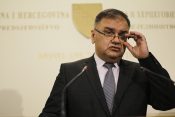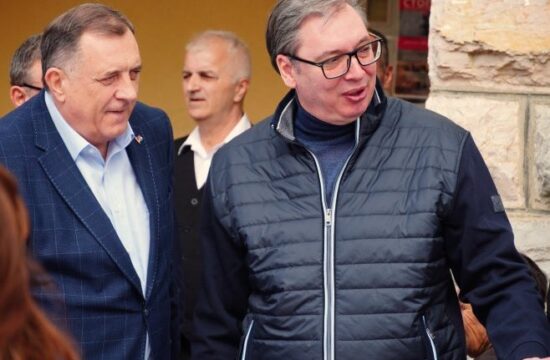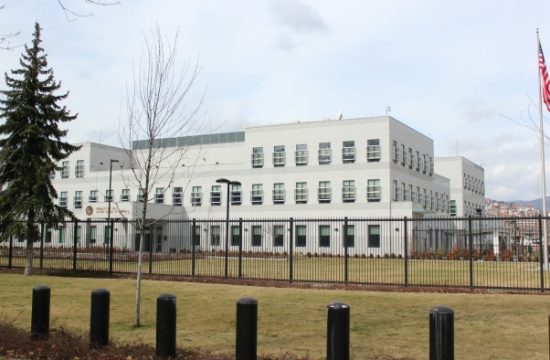
Entity public broadcaster in the Republika Srpska (RS) entity, Bosnia's Serb-dominated part, responded on Tuesday to the Serb representative in Bosnia's tripartite Presidency, dismissing the allegations that he was given unequal treatment in the programme of this broadcaster.
In return, Radio Television of the RS (RTRS) Editorial Board told Presidency member, Mladen Ivanic, he was ignoring their inquiries sent to his office.
“All our pleas to hear your stances on daily political developments and the inquiries we are sending to your cabinet, for the sake of the objectivity and the respect for the right of the public to be informed, remain unanswered, as a rule”, said the RTRS.
The last such case, according to the editorial board, happened when the public broadcaster asked for Ivanic's stance on the invitation for the Kosovo delegation's to attend an informal meeting in Banja Luka, the seat of the RS institutions.
“…neither you nor anyone from your cabinet deigned to answer. But, this has become a rule and display of your stance towards the Republika Srpska public and its public broadcaster,” said the RTRS editorial board.
Addressing the RTRS two days ago, Ivanic asked for the time slot, as he said, he was sure was planned for his appearance on the RTRS, in line with the provisions of the Law on the RTRS.
“I believe that, several days before the official start of the election campaign, you care to obey the constitutional obligation of objective reporting of public as well as the Law on the RTRS, which stipulates the production and editing of the programme in accordance with the highest professional criteria, regardless of the stances of government bodies, political parties and interest groups,” Ivanic wrote in his note to the public broadcaster.
Ivanic also noted he was “carefully watching” the appearance of the RS President, Milorad Dodik, who is also Ivanic's political opponent, in a lengthy show the last weekend whose concept he found “interesting.”
The public broadcaster responded that the show hosting the RS president discussed various topics including those that all relevant actors, including the opposition, had a chance to express their opinion on.
“In this way, the RTRS fully ensured the rightfulness and impartiality in all of its programmes,” the RTRS said, inviting the Bosnia's Presidency member to submit a written request if he thought any official said inaccurate or incomplete information during their appearances in the RTRS programmes.
Reminding Ivanic that he did have a chance to express his stances in programmes of this public broadcaster, the RTRS invited him to propose a concept of the show to the editorial board of the Radio Television of Bosnia and Herzegovina (BHRT), given that this public broadcaster is following the work of the Bosnia's institutions and bodies.
“As a small contribution to that idea, we suggest you call this show ‘A Presidency member speaks’,” RTRS said, adding, “We remind you that, in the interest of the Republika Srpska public, the RTRS sent you an invitation in the very beginning of your term for an appearance on our television. Back then you decided to express your stances, as a newly elected Serb member of Bosnia and Herzegovina's Presidency, on the Federation's television and not the public broadcaster of the Republika Srpska, by which you clearly defined your stance towards the RTRS and the public in Republika Srpska.”
In addition to one top public broadcaster, BHRT, Bosnia has other two, as stipulated by the Law on the Public Broadcasting Service, operating in its two semi-autonomous entities – the RTRS in the Serb-dominated part Republika Srpska and the Radio Television of the Federation of Bosnia and Herzegovina (RTVFBiH), in the Bosniak-Croat dominated entity.





